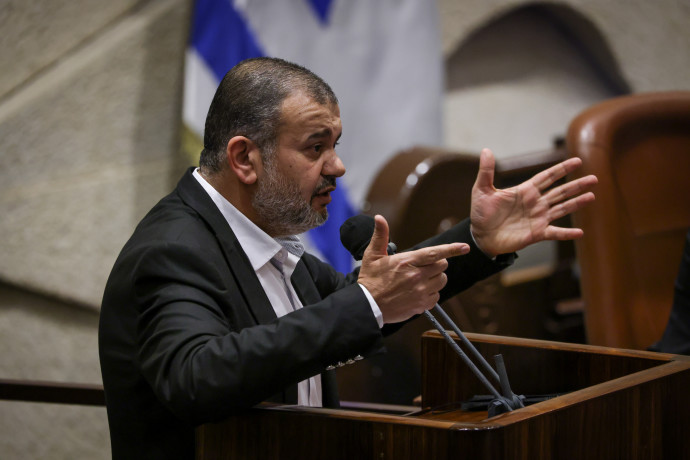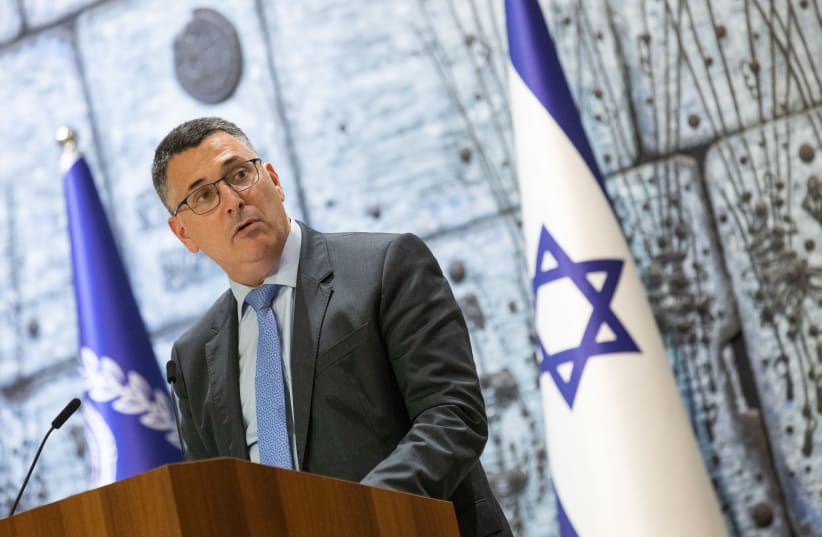Prime Minister Naftali Bennett’s governing coalition might not survive unless it passes legislation that would prevent civilian life in the West Bank settlements from falling into chaos, Justice Minister Gideon Sa’ar warned on Monday.
The bill, which extends emergency regulations for Area C of the West Bank, is passed automatically every five years.
It is a legislative go-around that allows for the governance of Israeli civilians living outside Israel’s sovereign borders in Judea and Samaria in a manner that does not meet the criteria of annexation.
Among the legal arenas that are impacted would be the right of the government to tax citizens living in the settlements, as well as the citizens’ right to receive state health insurance and national insurance.
It would also prevent the Israel Police from operating in the settlements, leaving criminal matters in the hands of the Military Police. Civilians charged with offenses would find themselves before a military court and facing time in military prisons.

Bereaved brothers and sisters bill
The bill to extend an apparatus for civilian laws in the settlements is not contentious and has passed automatically with so little fanfare that regional councils and councils in Judea and Samaria are scrambling to understand the nuance of what its absence would mean.
The issue is that its passage comes at a time when the opposition has pledged not to support any legislation, even ones such as this, whose absence would generate a crisis.
A vote on the bill was postponed by a week, because Ra’am (United Arab List), Meretz and opposition MKs said they would not support it.
In an interview with KAN on Tuesday, Justice Minister Gideon Sa’ar warned that the “game being played by the opposition is not only unprecedented but dangerous. The government has an obligation to pass routine legal arrangements like this bill. I made that clear to the heads of the parties. A coalition MK who opposes the bill is saying, ‘I don’t want this government to continue’.”
Ra’am faction chairman Waleed Taha responded on Twitter by daring Sa’ar, saying he is ready for such a challenge.
One possibility being negotiated is that in return for Ra’am’s support in passing the bill, Interior Minister Ayelet Shaked will approve the appointments of 35 new imams.
Another bill that has raised controversy would set in law the designation of bereaved brothers and sisters. The opposition, led by Likud leader Benjamin Netanyahu, announced on Monday that it would no longer support coalition bills.
However, a Likud spokesman said Tuesday that because this bill is a private member bill initiated by New Hope MK Michal Shir and not an official government bill, opposition MKs are free to vote for it, including Netanyahu, who is a bereaved brother himself.
Meanwhile, rebel coalition MK Michael Biton of Blue and White used strong language in criticizing Transportation Minister Merav Michaeli’s reform plan at a meeting on Tuesday of his Knesset Economics Committee.
The Transportation Ministry is stealing money from the periphery to give to the rich
MK Michael Biton
“The Transportation Ministry is stealing money from the periphery to give to the rich,” Biton said. “They are displaying wickedness, not justice.”
Michaeli said on Monday that the plan makes each kilometer of public transportation cost the same, and fixes inequality caused by crooked deals made by her predecessors.
